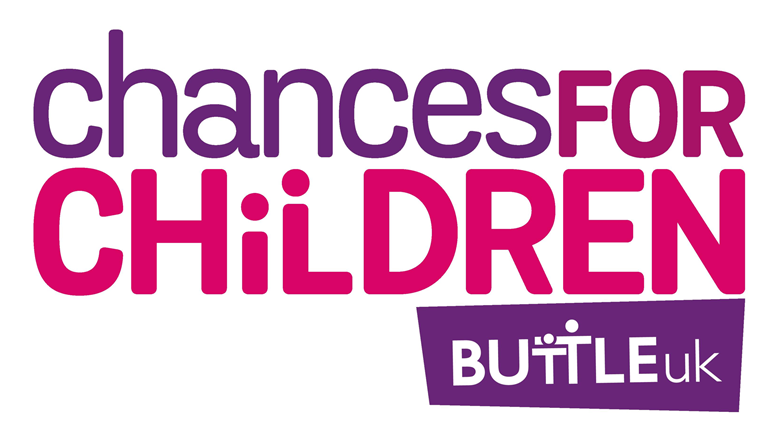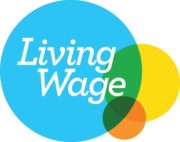The State of Child Poverty 2020
Buttle UK have today published 'The State of Child Poverty 20' - a unique insight into the impact of the COVID-19 pandemic inside the homes of some of the most vulnerable families in the UK.
The qualitative study of nearly 1,000 nationwide frontline workers was carried out at the point lockdown restrictions were lifted in June 2020, and is based on a survey of support workers who have been interacting daily with families throughout the crisis.
Buttle UK has managed to work alongside these support workers throughout the crisis, to distribute £857,647 in our Chances for Children grants to over 730 families in lockdown, supporting over 1,000 children and young people – a grant pool bolstered by support from a number of generous donors including the ‘BBC Big Night In’ TV fundraising event.
Whilst the report reinforces data seen elsewhere (i.e. increased unemployment, reliance on foodbanks, an Increase of Universal Credit recipients) it is unique in providing the first-hand, direct experiences of what frontline workers have witnessed from their interactions with families during the crisis.
Recognising the huge financial burden the pandemic will place on the UK in the future, the study sets out to explore the profound issues families have faced during the crisis and offer some recommendations to tackling these Issues as we enter the next phase of the crisis.
Key findings of the survey
Impact of crisis on children and young people’s education
During lockdown, there have been multiple pressures on children’s education – food poverty and a lack of digital access being two of the main issues. The result has been that those living in poverty have either had no home schooling at all, or have found it incredibly difficult to learn at home. The implication is that the education gap has widened, and many vulnerable children will have been left behind by the crisis. The impact of being cut off from peers has also impacted mental health. All of these issues will need focused intervention if these children are to make up the lost time and have a chance in life.
- Food poverty was seen as having the biggest impact on education, with 33% reporting that they see not being able to access food impacting children’s education most.
- 26% of respondents said families found home schooling challenging because of digital access – main issues are around shared or no computers, no broadband or insufficient internet speed (unable to download coursework), no access to printers, no quiet desk space to learn, and having to do homework through parents’ phones.
- 24% of respondents found barriers to home schooling due to parental mental and physical health barriers.
Impact of crisis on the mental health of children living in poverty
COVID-19 has significantly impacted the mental health and behaviour of children living in poverty. Being unable to leave often ill-equipped homes, homes with little in the way of stimulating activities or the opportunity to play with friends, has had a huge impact on children’s mental health. Struggling to afford basics such as food and utilities, as well as parents not having any down time away from their children, has led to increased tensions in many families. These are family situations that were already under stress before the lockdown, with children experiencing a variety of adverse childhood experiences (such as neglect, domestic abuse and parent alcohol/substance abuse) that have been exacerbated by the crisis.
- 84% of frontline workers have seen increases in children and young people’s mental health problems.
- 75% have seen an increase in behaviour problems.
- 77% of respondents reported that there has been an increase in need for mental health support during the crisis.
Impact of the crisis on employment and the family’s financial wellbeing, and meeting basic needs.
COVID-19 has impacted considerably on the financial wellbeing and their ability to meeting their children’s basic needs.
- 83% of frontline workers have seen an increase in need for foodbanks and 64% for local authority welfare assistance.
- Frontline workers reported major difficulties during lockdown for families in accessing basics. 57% could not afford essential household items; 47% of families were unable to afford food.
Looking into the future, when asked what the most important support will be for families as we transition out of lockdown, the most common responses were: financial support (34% responses); mental health support (33% responses); support re-engaging children into education (23% responses), and; helping families adapt back into routines (15% responses).
Buttle UK CEO Joseph Howes commented on the findings:
“For many children and young people, the pandemic has only amplified the difficulties that already existed in their lives, increasing their isolation and forcing them to spend many hours in homes that lack the bare essentials and comforts most other children take for granted. So many are not getting their basic needs met. The families at the heart of this report provide some of the most graphic examples of what the real impact of the crisis has been and indicates what is to come unless we act now.To address these challenges as we try to recover from the crisis is going to take imagination and collaboration between statuary, voluntary and private sectors.
Not all families were the same going into this crisis and they are certainly not the same coming out. As we attempt a recovery from the crisis, there are going to be some very big challenges facing the most vulnerable sectors in society. Without considering the interconnectedness of issues, additional funding alone will not address them. We know that whilst the Government cannot do everything, If can show leadership and put children at the heart of the recovery. But if we are going to make a dent in these seemingly intractable issues, we must act now to prevent a lost generation.”
Click here to listen to Buttle UK CEO, Joe Howes discuss the State of Child Poverty report.
Buttle UK are currently working nationwide with frontline workers to distribute a COVID Response fund of £5m to help vulnerable children. We are doing this by providing ‘Chances for Children’ grants of up to £2,000. The average grant during the crisis though, has been around £1,200. This is a relatively small financial intervention, but by paying for a range of items and costs, it provides a holistic solution to the range of issues a family faces.
Key recommendations from the report include:
A new, national child poverty strategy, lead by the Government, but involving the charity, private and public sectors. From the findings of this report, Buttle UK ask that the following issues are addressed in this strategy:
- Support for children as they go back to school that looks beyond catching up academically alone and focuses on their wellbeing. The use of targeted, tailored funds, like Chances for Children grants, can help support this.
- Involving the private sector in new, longer-terms solutions to the ‘digital divide’.
- Initiatives that bring together charities, and other sectors, to find ways to collectively tackle the issues facing the most vulnerable families.
Download an Executive Summary or the Full Report below.





